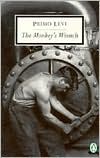Category Books
- Fiction Books & Literature
- Graphic Novels
- Horror
- Mystery & Crime
- Poetry
- Romance Books
- Science Fiction & Fantasy
- Thrillers
- Westerns
- Ages 0-2
- Ages 3-5
- Ages 6-8
- Ages 9-12
- Teens
- Children's Books
- African Americans
- Antiques & Collectibles
- Art, Architecture & Photography
- Bibles & Bible Studies
- Biography
- Business Books
- Christianity
- Computer Books & Technology Books
- Cookbooks, Food & Wine
- Crafts & Hobbies Books
- Education & Teaching
- Engineering
- Entertainment
- Foreign Languages
- Game Books
- Gay & Lesbian
- Health Books, Diet & Fitness Books
- History
- Home & Garden
- Humor Books
- Judaism & Judaica
- Law
- Medical Books
- New Age & Spirituality
- Nonfiction
- Parenting & Family
- Pets
- Philosophy
- Political Books & Current Events Books
- Psychology & Psychotherapy
- Reference
- Religion Books
- Science & Nature
- Self Improvement
- Sex & Relationships
- Social Sciences
- Sports & Adventure
- Study Guides & Test Prep
- Travel
- True Crime
- Weddings
- Women's Studies
The Monkey's Wrench » (Reprint)

Authors: Primo Levi, William Weaver (Translator), Ruth Feldman (Translator), Ruth Tenzer Feldman
ISBN-13: 9780140188929, ISBN-10: 0140188924
Format: Paperback
Publisher: Penguin Group (USA)
Date Published: July 1995
Edition: Reprint
Author Biography: Primo Levi
Book Synopsis
In this exuberant novel, one of Italy's greatest living writers celebrates the art of storytelling and the spirit of work through weaving the mesmerizing t ales of an itinerant construction worker, Libertini Faussone, and a writer-chemist, the true and fictional Primo Levi.
Publishers Weekly
In his second novel, Levi abandons the painful subject of the Holocaust and World War II with mixed results. His previous works, such as the memoirs Survival in Auschwitz and Moments of Reprieve, reveal his talent for careful, detailed storytelling and consciously artless dialogue, and this is a somewhat contrived celebration of that craft through the narrator's conversations with Faussone, an itinerant steelworker. Readers may find the technical minutiae on steel-rigging and paint chemistry (like Levi, the narrator is a paint chemist turned writer) less than compelling. But the novel also glistens with inspiring reflections on the disparate yet similar joys of mental and physical labor (the rigging of words vs. steel or molecules), and the relationship between storyteller/writer and listener/reader. Faussone passionately describes a truss tower-in-progress (``It was like seeing a baby grow'') and a finished crane (``It seemed to walk in the sky, smooth as silk, I felt like they'd made me a duke'') and offers his tales to the narrator (``You can work on it, grind it, hone it, deburr it, hammer it into shape, and you'll have a story''). The narrator similarly finds that ``loving your work . . . represents the best, most concrete approximation of happiness on earth'' but cautions that ``paper is too tolerant a material. You can write any old absurdity on it, and it never complains.'' (October
Table of Contents
Subjects
 Fiction & Literature Classics
Fiction & Literature Classics  European Fiction & Literature Classics
European Fiction & Literature ClassicsFiction Books & Literature
 Fiction Subjects
Fiction Subjects  Arts & Entertainment - Fiction
Arts & Entertainment - FictionFiction Books & Literature
 Fiction Subjects
Fiction Subjects  Occupations - Fiction
Occupations - Fiction
